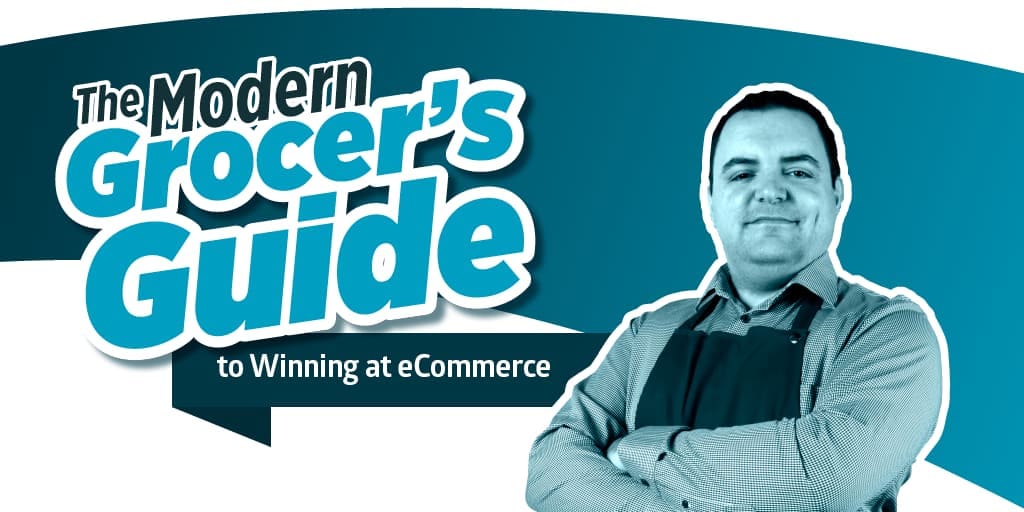New Playbook Reveals How Grocers Can Reclaim Online Revenue From Delivery Providers
TORONTO – May 21, 2020—Mercatus, a leading provider of digital commerce solutions for grocery and other retail verticals, today released its seven-part guide for grocers, The Modern Grocer’s Guide to Winning at eCommerce. This free guide maps out the steps grocery retailers can take to win back control of the online shopping experience and recoup lost margins from third-party delivery marketplaces.
Grocers have worked hard to build their individual grocery brands, heavily investing in brick and mortar over decades, and more recently, taking their brands online to cater to a growing consumer preference for digital convenience. To do so, many retailers have opted to outsource their online business to third-party marketplace providers. In the process, they have opened themselves up to significant risk. They have not only lost control of their customer and vendor relationships, but also lost significant valuable shopper data and profitable vendor allowances.
As digital grocery momentum continues to grow as a result of COVID-19 and its lasting effects, there’s mounting evidence that consumers have changed their shopping behavior and will continue to rely heavily on online shopping. With this comes a renewed focus by grocery retailers to look at opportunities to directly engage their shoppers more effectively and grow their long-term business. Taking a step-by-step approach, this guide offers retailers ways to break the dependency on third-party delivery providers.
Seven-Step Guide to Getting Back in Control
From analyzing current eCommerce offerings, to developing new strategies, implementing new solutions and beyond, The Modern Grocer’s Guide to Winning at eCommerce offers comprehensive advice to enable grocers to own their own eCommerce experience. In the guide, Mercatus walks grocers through the steps necessary to reach this freedom:
- Take control of shopper data and loyalty;
- Develop an effective customer-centric eCommerce strategy;
- Align the key players in your organization;
- Evaluate and find the perfect eCommerce provider;
- Prepare for a discovery meeting with your new eCommerce provider;
- Plan for a successful implementation;
- Evolve and expand your eCommerce experience to keep pace with change and maximize success.
The guide also touches on the importance of owning and protecting customer data. Third-party delivery providers act as intermediaries, coming between the retailer brand and their shopper. By co-opting the customer experience, rather than allowing grocers to maintain and foster these hard-earned relationships, marketplace providers weaken shopper loyalty and dilute what makes grocery retailers unique. Throughout the guide, Mercatus asks questions and provides guidance to ensure grocers prioritize ownership of shopper data and protection of the shopper journey when choosing a provider.
A Game Plan for Long Term Success
In the guide, Mercatus offers key metrics and resources for continued eCommerce success. This includes detailed checklists and questions for grocers to assess throughout the implementation process, including:
- 10 questions to ask their current delivery-provider marketplace
- How to evaluate a prospective solution provider
- Commerce website launch checklist for implementation
Additionally, the guide provides invaluable KPIs and industry benchmarks to monitor throughout the process, such as CLTV (customer lifetime value), which is often overlooked by grocers, but has enormous value, particularly as they move into the online world. It also recommends that grocers pay attention to data such as how many new online shoppers they are gaining, shopping cart abandon rate, typical online basket size compared to in-store basket size and trends in purchase behavior such as items bought and timing of online orders. This meticulous analysis of internal and industry-wide trends is essential to adopting a new, successful eCommerce platform.
“Even if a grocer is currently working with a marketplace provider, it’s never too late to add to your own eCommerce offering, and even work towards reducing dependence on marketplace sales by embracing your own eCommerce solution exclusively,” said Sylvain Perrier, president and CEO, Mercatus. “With a brand-owned online shopping solution in place, retailers can take back margin lost to delivery providers, keeping up to 16% or more of their revenue on a typical online order.”
To learn more about how grocery retailers can take back charge of their eCommerce experience, visit mercatus.com and download The Modern Grocer’s Guide to Winning at eCommerce here.
About Mercatus
Mercatus helps leading grocers get back in charge of their eCommerce experience, empowering them to deliver exceptional retailer-branded, end-to-end online shopping, from store to door. Our expansive network of more than 50 integration partners allows grocers to work with their partners of choice, on their terms. Together, we enable clients to create authentic digital shopping experiences with solutions to drive shopper engagement, grow share of wallet and profitability, and quickly adapt to changes in consumer behavior. The Mercatus Integrated Commerce® platform is used by leading North American retailers, including Weis Markets, Save Mart brands, Brookshire’s Grocery Company brands, WinCo Foods, Smart & Final and others. Mercatus is headquartered in Toronto, Canada.
Media Contacts
416-603-3406
[email protected]
Greg Earl
Ketner Group Communications (for Mercatus)
512-794-8876
[email protected]
 Newsroom
Newsroom



